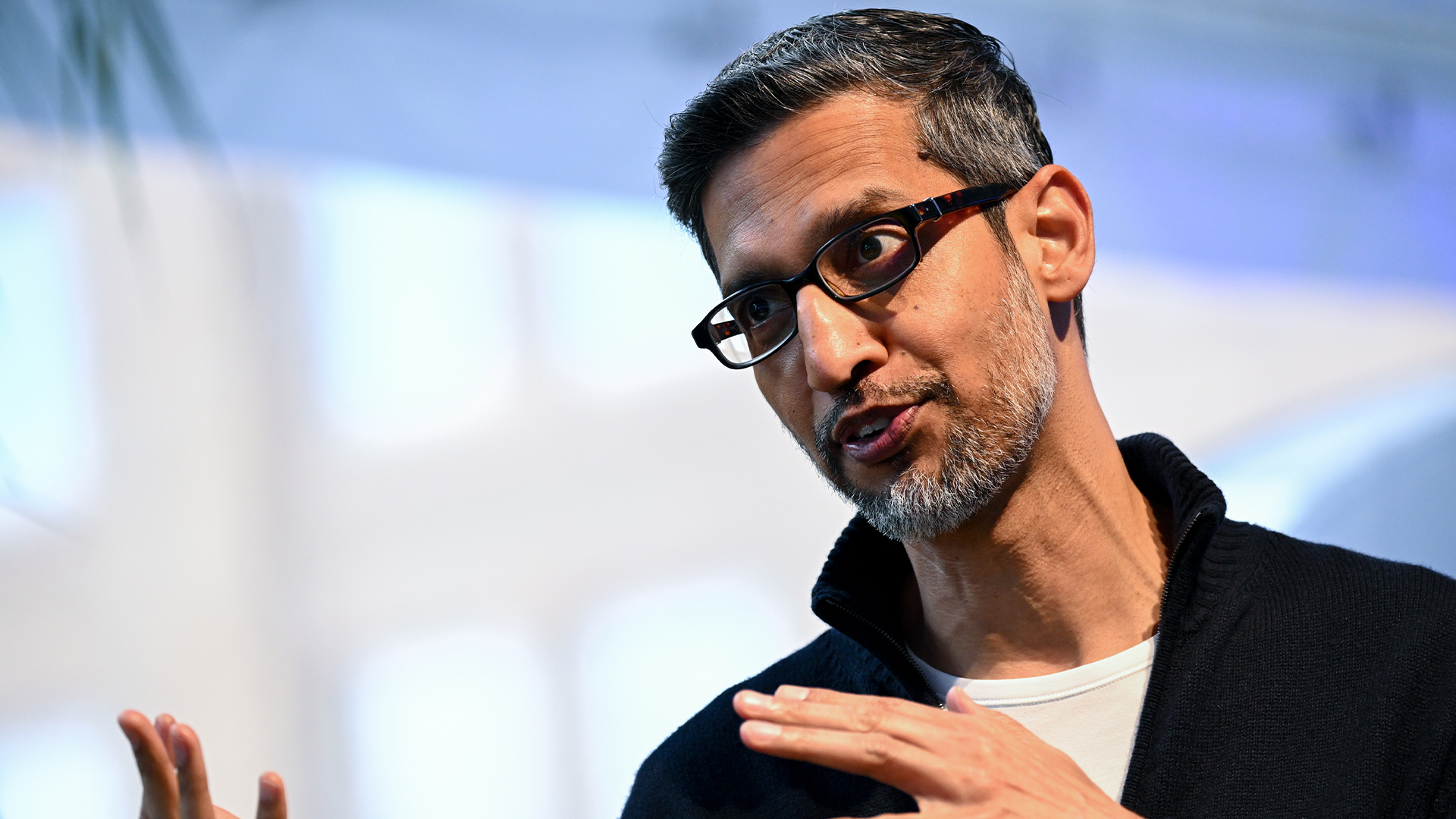EU’s Cyber Resilience Act would benefit from US’ open source approach
The EU is said to be “shooting itself in the foot” if current proposals are passed into law


The European Union (EU) should consider replicating the US government’s approach to open source software regulation with its Cyber Resilience Act (CRA), according to a leading expert.
Speaking to ITPro at KubeCon 2023, Gabriele Columbro, general manager for the Linux Foundation in Europe, said the CRA’s current iteration would “change the entire community dynamic” and hamper European businesses.
An open letter signed this week by major industry organizations, including Linux Foundation Europe, said the proposal in its current form will have a “chilling effect” on open source software development.
Under the current iteration, open source developers themselves would be held liable for vulnerabilities in software.
By contrast, the US government’s Cyber Security Strategy, unveiled in February this year, excluded liability for open source software developers and projects.
The decision was hailed at the time as a highly positive move from the Biden administration.
Columbro warned that the EU’s current approach could have a significant impact on the European open source community if the bill was to pass in its current form.
Sign up today and you will receive a free copy of our Future Focus 2025 report - the leading guidance on AI, cybersecurity and other IT challenges as per 700+ senior executives
RELATED RESOURCE

Automating application-driven container elasticity
For platform and DevOps engineers looking to operationalize speed to market while assuring application performance
“I think this will have an impact at multiple levels,” he said. “The one I’m worried about the most is what this will mean for our contributors. I think the Linux Foundation and others will feel an impact, but we’re maybe better positioned than others to address those.”
“In the worst-case scenario, individual contributors could be worried that they’ll be slapped with lawsuits and eventually just decide not to put a project in the open.”
Columbro noted that the inclusion of liability for open source projects appears ‘idiosyncratic’ due to the fact that Europe actively benefits from open source projects and software.
Millions of businesses spread across 27 member states rely on open source software, which is developed and maintained by a dedicated pan-continental community.
The entire community dynamic will change,” he said. “And this would primarily hamper Europe. Because outside of Europe, open source innovation will continue - will GitHub have to block open source downloads from inside Europe?”
“Europe bets a lot on open source, but with this it shoots itself in the foot.”
The CRA’s wider failings
Columbro noted that with the EU’s approach to open source software, which appears to have been influenced by the disastrous Log4shell incident, there are particular differences. Not least of all with regard to national security concerns.
In the wake of Log4Shell, the White House actively sought to engage with software vendors and open source communities such as the Linux Foundation to plan its future approach and mitigate potential supply chain risks.
But this was from a national security perspective, he added. The US government has a national security mandate while the EU does not, instead delegating national security to individual member states.
This creates somewhat of a headache for the Linux Foundation and other communities, he said, who are now faced with engaging with multiple different governments across the union.
“The reason the US was so quick in the wake of Log4shell to bring together the Linux Foundation, Apache Software Foundation, and all the major tech vendors to discuss the response was, of course, from the angle of securing their critical infrastructure and national security.”
“That’s because the federal government in the US has a national security mandate. The EU doesn’t have a national security mandate, that is delegated to individual sovereign states.
“That is a completely different approach that we need to take as an open source community to work with the 27 member states. But that’s a more humongous approach.”
Positive engagement
Columbro’s comments follow the open letter’s publication and he is confident that this could spark a positive discussion - and outcome - about CRA-related concerns.
“The intent of the open letter was to offer up a global, broad consensus with deep experience in this world as foundations,” he said.
“It was really to let the European Union know that we can work together with each other and we want to create an ongoing dialogue and offer up a conversation to help refine [the act].”
“I do think, ultimately, that there is definitely willingness from the EU to improve. I am positive that there is going to be a positive outcome to the CRA,” he added.

Ross Kelly is ITPro's News & Analysis Editor, responsible for leading the brand's news output and in-depth reporting on the latest stories from across the business technology landscape. Ross was previously a Staff Writer, during which time he developed a keen interest in cyber security, business leadership, and emerging technologies.
He graduated from Edinburgh Napier University in 2016 with a BA (Hons) in Journalism, and joined ITPro in 2022 after four years working in technology conference research.
For news pitches, you can contact Ross at ross.kelly@futurenet.com, or on Twitter and LinkedIn.
-
 What is Microsoft Maia?
What is Microsoft Maia?Explainer Microsoft's in-house chip is planned to a core aspect of Microsoft Copilot and future Azure AI offerings
-
 If Satya Nadella wants us to take AI seriously, let’s forget about mass adoption and start with a return on investment for those already using it
If Satya Nadella wants us to take AI seriously, let’s forget about mass adoption and start with a return on investment for those already using itOpinion If Satya Nadella wants us to take AI seriously, let's start with ROI for businesses
-
 ‘1 engineer, 1 month, 1 million lines of code’: Microsoft wants to replace C and C++ code with Rust by 2030 – but a senior engineer insists the company has no plans on using AI to rewrite Windows source code
‘1 engineer, 1 month, 1 million lines of code’: Microsoft wants to replace C and C++ code with Rust by 2030 – but a senior engineer insists the company has no plans on using AI to rewrite Windows source codeNews Windows won’t be rewritten in Rust using AI, according to a senior Microsoft engineer, but the company still has bold plans for embracing the popular programming language
-
 AWS says ‘frontier agents’ are here – and they’re going to transform software development
AWS says ‘frontier agents’ are here – and they’re going to transform software developmentNews A new class of AI agents promises days of autonomous work and added safety checks
-
 Google CEO Sundar Pichai thinks software development is 'exciting again' thanks to vibe coding — but developers might disagree
Google CEO Sundar Pichai thinks software development is 'exciting again' thanks to vibe coding — but developers might disagreeNews Google CEO Sundar Pichai claims software development has become “exciting again” since the rise of vibe coding, but some devs are still on the fence about using AI to code.
-
 Google Brain founder Andrew Ng thinks everyone should learn programming with ‘vibe coding’ tools – industry experts say that’s probably a bad idea
Google Brain founder Andrew Ng thinks everyone should learn programming with ‘vibe coding’ tools – industry experts say that’s probably a bad ideaNews Vibe coding might help lower the barrier to entry for non-technical individuals, but users risk skipping vital learning curves, experts warn.
-
 Anthropic’s new Claude Code web portal aims to make AI coding even more accessible
Anthropic’s new Claude Code web portal aims to make AI coding even more accessibleNews Claude Code for web runs entirely in a user’s browser of choice rather than in a command-line interface and can be connected directly to chosen GitHub repositories.
-
 The UK’s aging developer workforce needs a ‘steady pipeline’ of talent to meet future demand – but AI’s impact on entry-level jobs and changing skills requirements mean it could be fighting an uphill battle
The UK’s aging developer workforce needs a ‘steady pipeline’ of talent to meet future demand – but AI’s impact on entry-level jobs and changing skills requirements mean it could be fighting an uphill battleAnalysis With the average age of developers in the UK rising, concerns are growing about the flow of talent into the sector
-
 AI coding really isn't living up to expectations – "the savings have been unremarkable" but not for the reason you might think
AI coding really isn't living up to expectations – "the savings have been unremarkable" but not for the reason you might thinkNews Companies are focusing too heavily on simple AI coding tasks, and not overhauling wider business processes
-
 UK government programmers trialed AI coding assistants from Microsoft, GitHub, and Google – here's what they found
UK government programmers trialed AI coding assistants from Microsoft, GitHub, and Google – here's what they foundNews Developers participating in a trial of AI coding tools from Google, Microsoft, and GitHub reported big time savings, with 58% saying they now couldn't work without them.